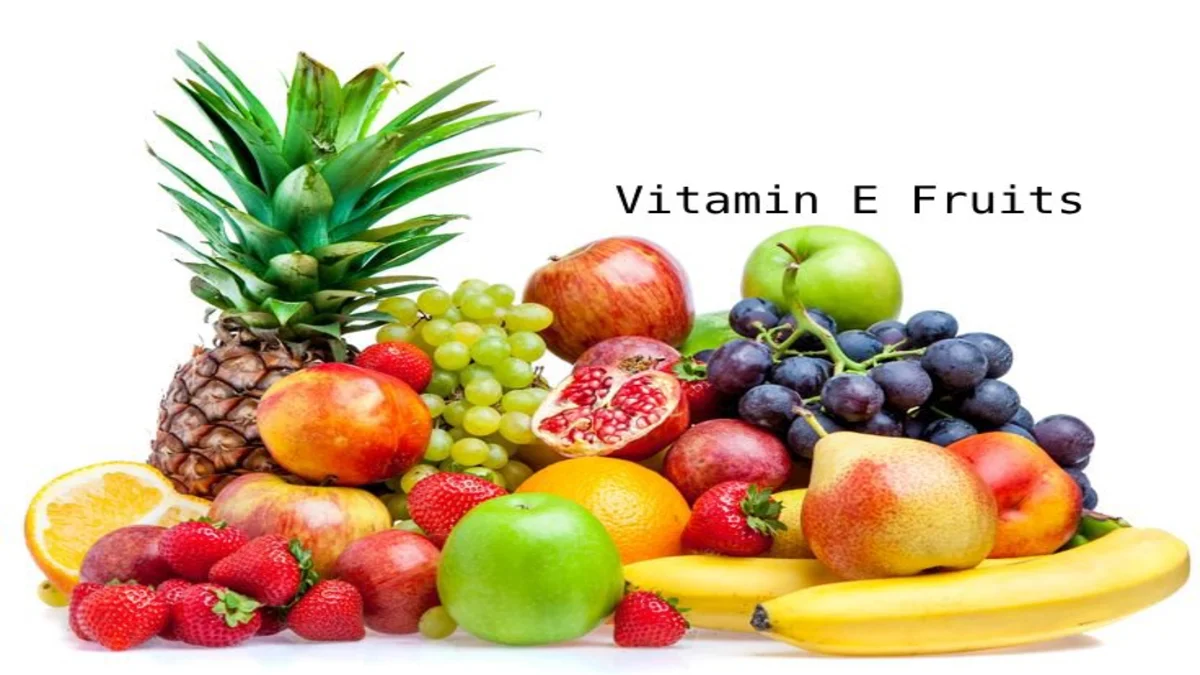Did you know the surprising Zinc Benefits for Women? According to a study, women who are deficient in zinc may be at higher risk for a variety of health problems, including cognitive impairment, diminished insulin sensitivity, and increased inflammation. zinc deficiency is also associated with weight gain and the development of obesity in both men and women. Zinc is an essential mineral that helps restore energy levels, manage stress, improve moods, support reproductive health, and protect the body against disease
What is Zinc?
Since zinc cannot be produced by the body or stored in reserves, it is regarded as an important nutrient.
You have to have a steady supply from your diet as a result.
Your body needs zinc for several different processes, including.
- gene expression
- enzymatic reactions
- immune function
- protein synthesis
- DNA synthesis
- wound healing
- growth and development
Many different plant and animal diets naturally contain zinc.
Foods like breakfast cereals and snack bars that don’t naturally contain zinc are frequently fortified with synthetic forms of the mineral.
Moreover, you can take multi-nutrient supplements that contain zinc or zinc supplements.
Zinc is also added to certain lozenges and other natural cold remedies due to its role in immune function.
What is the function of zinc?
All of the body’s cells naturally contain zinc. It is essential for the activity of proteins, enzymes, and DNA (your genes), and it aids in the growth and division of cells. You must obtain zinc from your diet because the body is unable to produce it. The muscle and bone are where it is primarily kept.
Zinc is necessary for numerous bodily processes, including:
Immune system: Zinc helps the body fend against infection. Individuals who do not have adequate zinc levels in their bodies may be more susceptible to illnesses. The elderly and children are particularly vulnerable.
Healing of wounds: Zinc promotes healthy skin. Lack of zinc in the diet can cause skin abnormalities that first may resemble eczema. Those who have burns or leg ulcers that heal poorly or never heal can benefit from taking supplements containing zinc.
Taste and smell: One of the enzymes required for taste and smell perception is highly dependent on zinc.
Deficiency zinc symptoms
Zinc is an essential mineral that plays a crucial role in various physiological functions within the human body. A zinc deficiency can lead to a range of symptoms and health issues. Here are some common deficiency symptoms of zinc:
- Hair Loss: Zinc plays a role in maintaining the health of hair follicles, and a deficiency can contribute to hair loss and thinning. Adequate zinc levels are important for overall hair strength and growth.
- Skin Problems: Skin issues such as dryness, dermatitis, and acne can be associated with zinc deficiency. Zinc is involved in the production of collagen, a key component of healthy skin.
- Loss of Appetite: Zinc deficiency may lead to a reduced sense of taste and smell, resulting in a loss of appetite. This can potentially lead to weight loss and nutritional deficiencies.
- Gastrointestinal Distress: Zinc is crucial for maintaining the integrity of the gastrointestinal lining. Deficiency can contribute to digestive problems, including diarrhea and increased susceptibility to infections.
- Impaired Cognitive Function: Zinc plays a role in neurotransmitter function, and a deficiency may affect cognitive processes. Symptoms may include difficulty concentrating, memory issues, and mood disturbances.
- Reduced Growth and Development: Zinc is essential for proper growth and development, especially in children. A deficiency can lead to stunted growth, delayed sexual maturation, and developmental issues.
- Vision Problems: Zinc is present in high concentrations in the eyes, particularly in the retina. A deficiency may contribute to vision problems, including night blindness.
- Hormonal Imbalances: Zinc is involved in the regulation of hormones, including those related to the reproductive system. Deficiency can lead to hormonal imbalances, affecting menstrual cycles and fertility in women.
When to contact a doctor?
Most of the time, a zinc deficit is not life-threatening. That being said, you must take immediate action to address any suspected zinc shortage if you are pregnant or nursing a child. For appropriate growth to occur in the womb, zinc is required.
You should contact a doctor if you have diarrhea that lasts for several days and you are aware that you are lacking. Without zinc, the mineral that helps your intestines fight off infections may make your infection worse.
Like with any ailment, get in touch with your doctor if you:
- feel queasy or lightheaded
- experience an unexpected headache that won’t go away
- get unconscious
The Best 10 Zinc Benefits for Women
1. Immune Empowerment (Zinc Benefits for Women)

Zinc emerges as a powerhouse in fortifying the immune system, equipping women to fend off infections and illnesses with resilience.
2. Radiant Skin and Hair (Zinc Benefits for Women)

Elevating beauty from within, zinc contributes to clear, glowing skin and lustrous hair. Its role in collagen synthesis promotes elasticity and vibrancy.
3. Hormonal Harmony (Zinc Benefits for Women)
Women navigating the intricate landscape of hormonal balance find an ally in zinc. It supports the regulation of hormones, easing menstrual cycles, and promoting reproductive health.
4. Vital Reproductive Health (Zinc Benefits for Women)
From conception to pregnancy, zinc plays a pivotal role in ensuring the reproductive health of women. It supports fertility, fetal development, and a healthy pregnancy.
5. Elevated Mood and Cognitive Function (Zinc Benefits for Women)
Zinc’s influence extends to mental well-being, aiding in cognitive function and contributing to mood stability. Women experience enhanced focus and mental clarity.
6. Energy Amplification (Zinc Benefits for Women)
Energy amplification through the incorporation of zinc into a woman’s diet stands as a pivotal factor in promoting overall well-being and vitality. Zinc, an essential trace element, plays a multifaceted role in bolstering energy levels, particularly in women.
This mineral catalyzes enzymatic reactions crucial to cellular metabolism, ensuring the efficient conversion of nutrients into usable energy. Moreover, zinc actively participates in the synthesis of DNA and RNA, supporting the body’s fundamental processes. In the context of women’s health, zinc emerges as a formidable ally in combating fatigue and enhancing stamina.
7. Bone Strength and Density (Zinc Benefits for Women)
Women, particularly as they age, benefit from zinc’s association with bone health. It contributes to bone density, reducing the risk of osteoporosis.
8. Heart Health Champion (Zinc Benefits for Women)
Zinc exhibits cardiovascular prowess by supporting healthy blood vessels, regulating blood pressure, and contributing to overall heart health for women.
9. Gastrointestinal Guardian (Zinc Benefits for Women)
Maintaining intestinal integrity, zinc promotes a healthy digestive system. It aids in nutrient absorption and shields against gastrointestinal issues.
10. Anti-inflammatory Shield (Zinc Benefits for Women)
In the face of inflammation, zinc emerges as a natural defender, mitigating inflammatory processes and contributing to the overall well-being of women.
Advice on How to Eat Enough Zinc
In the quest for well-rounded health, zinc stands out as a crucial mineral with multifaceted benefits. To harness its potential and ensure you’re getting enough, consider these exclusive tips tailored for incorporating zinc seamlessly into your lifestyle.
- Diverse Dietary Sources:
- Embrace a rainbow of nutrient-rich foods. Include zinc-packed options such as oysters, lean meats, poultry, seafood, dairy, nuts, seeds, and whole grains in your meals. Variety not only enhances taste but also broadens your nutrient intake.
- Balanced Nutrition:
- Opt for a balanced diet that encompasses a spectrum of vitamins and minerals. A well-rounded nutritional approach ensures that zinc synergizes with other nutrients, promoting overall health and preventing imbalances.
- Mindful Cooking Methods:
- Be mindful of cooking methods. While cooking is essential for some foods, certain methods like steaming and roasting can help retain more zinc in vegetables. Avoid excessive processing that may deplete the mineral content.
- Strategic Supplementation:
- Consider supplements judiciously. If dietary sources fall short, supplements can bridge the gap. However, consult with a healthcare professional to determine the right dosage, as excessive intake can lead to adverse effects.
- Zinc-Friendly Recipes:
- Infuse creativity into your kitchen by exploring recipes that highlight zinc-rich ingredients. From zinc-packed salads to hearty stews, experiment with dishes that cater to your taste buds while ensuring optimal nutrient intake.
- Meal Pairing for Absorption:
- Enhance zinc absorption by pairing zinc-rich foods with those containing organic acids or proteins. For example, enjoy a lean meat dish with beans or lentils to boost absorption and make the most of the zinc content.
- Awareness of Absorption Inhibitors:
- Be aware of substances that may inhibit zinc absorption. Phytates, found in some grains and legumes, can bind to zinc and reduce its absorption. Soaking, fermenting, or sprouting these foods can mitigate this effect.
- Regular Health Check-ups:
- Schedule regular health check-ups to monitor your nutrient levels, including zinc. Individual needs vary, and routine assessments provide insights into whether your dietary choices align with your body’s requirements.
- Consideration for Special Populations:
- Special populations, such as pregnant or lactating women and vegetarians, may have unique zinc requirements. Tailor your intake to accommodate these needs, and consult with healthcare providers for personalized guidance.
- Mindful Lifestyle Choices:
- Certain lifestyle choices, such as excessive alcohol consumption and smoking, can deplete zinc levels. Mindful choices, like moderating alcohol intake and quitting smoking, contribute to overall health and support zinc balance.
Zinc foods sources

| Food Source | Zinc Content (per 100g) | Additional Nutrients |
|---|---|---|
| Meat and Poultry | ||
| Beef (lean, cooked) | 12.3 mg | High-quality protein, iron, and B vitamins |
| Chicken (cooked, skinless) | 1.6 mg | Protein, phosphorus, and niacin |
| Turkey (cooked, skinless) | 3.1 mg | Protein, selenium, and B vitamins |
| Seafood | ||
| Oysters (cooked) | 78.6 mg | Highest zinc content, also rich in omega-3 fats |
| Crab (cooked) | 6.5 mg | Protein, vitamin B12, and selenium |
| Lobster (cooked) | 2.7 mg | Protein, phosphorus, and magnesium |
| Dairy and Eggs | ||
| Cheese (cheddar) | 3.1 mg | Calcium, phosphorus, and vitamin B12 |
| Milk (whole) | 0.4 mg | Calcium, vitamin D, and protein |
| Eggs (cooked) | 1.3 mg | Protein, vitamin B12, and choline |
| Legumes and Nuts | ||
| Chickpeas (cooked) | 1.5 mg | Protein, fiber, and folate |
| Lentils (cooked) | 1.3 mg | Protein, fiber, and iron |
| Pumpkin Seeds | 10.3 mg | Rich in protein, healthy fats, and magnesium |
| Cashews | 5.6 mg | Healthy fats, protein, and copper |
| Whole Grains | ||
| Quinoa (cooked) | 1.1 mg | Protein, fiber, and various vitamins |
| Brown Rice (cooked) | 1.1 mg | Fiber, magnesium, and B vitamins |
| Vegetables | ||
| Spinach (cooked) | 0.5 mg | Iron, magnesium, and vitamins A, C, K |
| Mushrooms (white, cooked) | 0.5 mg | Vitamin D, B vitamins, and antioxidants |
| Fruits | ||
| Avocado | 1.3 mg | Healthy fats, potassium, and vitamin K |
| Blackberries | 0.5 mg | Fiber, vitamin C, and antioxidants |
Pros vs. cons of zinc
| Pros of Zinc | Cons of Zinc |
|---|---|
| 1. Immune System Support: | 1. Potential for Toxicity: |
| – Strengthens the immune response. | – Excessive intake can lead to toxicity symptoms. |
| – Helps fight off infections and illnesses. | – Long-term high doses can impair immune function. |
| 2. Reproductive Health: | 2. Gastrointestinal Side Effects: |
| – Essential for fertility and reproduction. | – Some may experience nausea or digestive issues. |
| – Plays a role in fetal development. | – Taking zinc on an empty stomach may cause upset. |
| 3. Skin and Hair Benefits: | 3. Interference with Other Minerals: |
| – Supports healthy skin and hair. | – Excessive zinc intake may interfere with copper. |
| – May help with acne and dermatitis. | – Imbalance can lead to other mineral deficiencies |
| like iron and manganese. | |
| 4. Cognitive Function: | 4. Interaction with Medications: |
| – Contributes to mood regulation. | – Zinc supplements can interact with certain meds. |
| – Supports cognitive processes. | – Caution needed for those on antibiotics or meds |
| for autoimmune disorders. | |
| 5. Bone Health: | 5. Allergic Reactions: |
| – Works synergistically with calcium. | – Some individuals may be allergic to zinc. |
| – Important for bone density and strength. | – Allergic reactions can range from mild to severe |
| and may include rash, itching, or swelling. |
The bottom line
In the intricate tapestry of women’s health, zinc emerges as a potent ally, weaving essential zinc benefits for Women that span across various facets of well-being. From fortifying the immune system and supporting reproductive health to enhancing skin vibrancy and promoting cognitive wellness, zinc plays a pivotal role. Scientific evidence, as highlighted by reputable sources, underscores the significance of zinc in empowering women to thrive physically, mentally, and emotionally.
As a cornerstone mineral, zinc not only aids in addressing deficiency symptoms but also acts as a proactive measure for overall health optimization. Whether sourced from nutrient-rich foods or through supplements, integrating zinc into a balanced lifestyle fosters resilience against ailments, nurtures hormonal equilibrium, and contributes to the foundation of robust bone health.
In the pursuit of holistic wellness, women are encouraged to embrace the diverse benefits of zinc, backed by credible research. As a catalyst for vitality, zinc stands as an exclusive pillar in the realm of women’s health, championing a life characterized by strength, balance, and enduring well-being.





